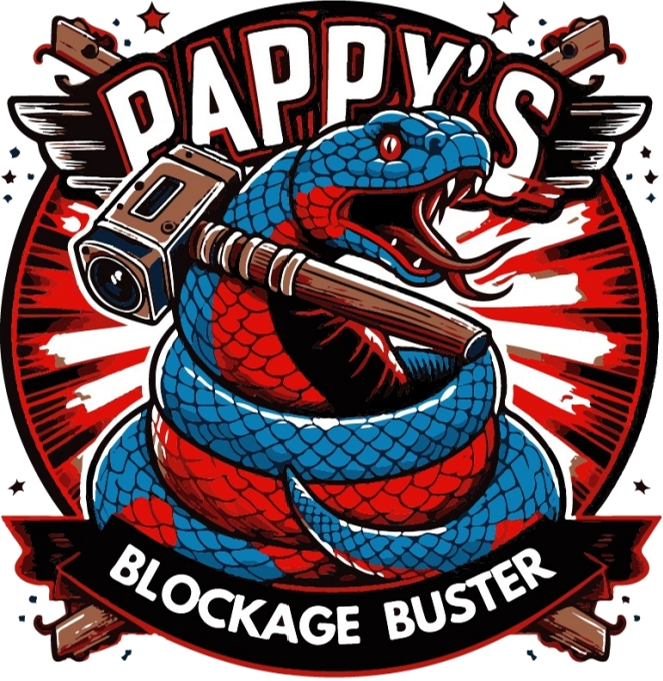FAQs
Pappy's Blockage Buster
Have a pipeline-, vent-, drain-, or sewer-related question? Pappy's Blockage Buster has the answer. Check out these FAQs and call or text us today for more information!
-
Why is my dryer not heating up like it used to?
According to Forbes, the main cause of dryer fires is dust, fiber, or lint. Over time, lint and debris can accumulate in the dryer vent and ductwork, restricting airflow. This reduced airflow can cause your dryer to overheat, leading to thermal cutoffs that prevent it from heating properly. Additionally, excessive lint buildup can pose a serious fire hazard, making regular vent cleaning essential for both efficiency and safety. For more information about dryer vent cleaning in Weirton, WV, call today!
-
Do you offer free consultations?
Yes, call today for a free consultation on our services, including sewer cleaning in Weirton, WV.
-
Are you licensed and insured?
Yes, we are 100% licensed and insured for all of our services, from sewer line cleaning to dryer vent cleaning in Weirton, WV. Call Pappy's Blockage Buster today.
-
How often should dryer vents be cleaned?
Dryer vents should typically be cleaned at least once a year. However, more frequent cleaning may be needed if you use your dryer heavily or if you notice signs of poor ventilation, such as clothes taking longer to dry or excessive lint buildup.
-
What happens if you don't clean your dryer vent?
Failing to clean your dryer vent can lead to several problems, including decreased dryer efficiency, longer drying times, and a higher risk of a fire caused by lint buildup.
-
How do you know if your dryer vent is clogged?
Signs of a clogged dryer vent include clothes taking longer to dry, a burning smell when the dryer is running, the dryer becoming excessively hot, and lint buildup around the vent or in the lint trap.
-
Can you clean dryer vents yourself?
Yes, you can clean dryer vents yourself using a vent cleaning kit or a vacuum. However, for hard-to-reach or long ductwork, it's often recommended to hire a professional to ensure a thorough cleaning.
-
How often should a sewer line be cleaned?
It's generally recommended to clean your sewer line every 18 to 22 months. However, this can vary depending on the age of the pipes, tree root issues, and how heavily the plumbing system is used.
-
What are the signs that your sewer line is clogged?
Signs of a clogged sewer line include slow-draining sinks and bathtubs, gurgling sounds in the drains, unpleasant odors from plumbing fixtures, and sewage backups in the home.
-
Can I clean my sewer line myself?
While minor blockages in drains can sometimes be cleared with a plunger or a drain snake, cleaning a main sewer line typically requires specialized equipment. Professional plumbers use tools like hydro jetting or augers to effectively clear blockages.
-
What causes a sewer line to clog?
Common causes of sewer line clogs include tree root infiltration, grease buildup, flushing non-flushable items (like wipes or feminine hygiene products), and the accumulation of debris or waste over time.

Share On: